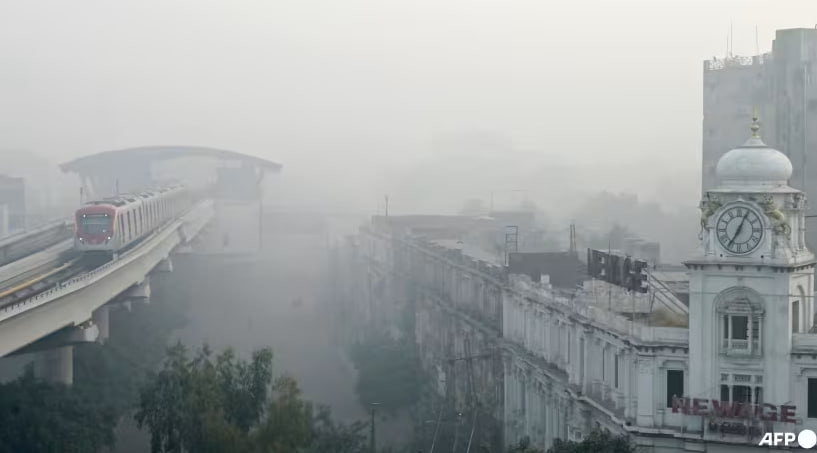
LAHORE, Pakistan – Classes will be suspended this week at primary schools across Pakistan’s second-largest city, Lahore, after it reported record levels of pollution over the weekend.
Education authorities in Punjab, the province that includes Lahore, announced on Sunday that classes for students up to the fifth grade would be canceled for a week because of the “deteriorating Air Quality Index.” Classes for students in higher grade levels will not be affected.
The announcement came after the city reached an Air Quality Index of over 1,000 at one point on Sunday morning, according to IQAir, a Swiss air quality technology company. Anything above 301 is considered hazardous. The concentration of PM2.5, an especially harmful pollutant, reached nearly 30 times World Health Organization guidelines for safe air quality.
Pollution levels in Lahore were so high that they were “outside the range of classification,” said Ahmad Rafay Alam, an environmental lawyer in Lahore and a member of the Pakistan Climate Change Council, a government body. “It’s an apocalypse,” he added.
Lahore was the world’s second-most-polluted city after New Delhi, India, according to IQAir data on Monday afternoon. Lahore regularly tops the list of the world’s most polluted, according to the index, which last year ranked Pakistan among the four countries with the worst air pollution on earth.
The pollution has a severe impact on human life, Mr. Alam said, adding that people living in cities in Pakistan lose, on average, two years of life expectancy because of poor air quality.
Experts attribute Lahore’s smog to a combination of crop burning, heavy vehicle traffic, industrial emissions, weather conditions and lax regulations. Beginning every fall, after harvest season, farmers in Punjab and nearby areas burn crop stubble, sending smoke and pollutants into the air. Smog levels are particularly severe from October to February.
Cooler temperatures and low levels of wind trap this pollution close to the ground, creating a blanket of thick, lingering smog.
In Lahore, a city of about 11 million people, schools have shut down or limited operations because of air pollution before. In 2021, schools and offices were closed three days a week for several months. Last November, the authorities restricted operations of schools, markets and businesses for several days.
This year, the smog has lasted longer than is typical, according to Marriyum Aurangzeb, a senior minister in the Punjab provincial government, who told a news conference that the authorities have been battling it for the past eight months.
Pakistani officials have also pointed a finger at neighboring India, where farmers also burn crops in the colder months. Lahore is 15 miles from the border between the two nations, and winds have blown smoke into Pakistan, Ms. Aurangzeb said.
Ms. Aurangzeb has urged residents to stay indoors and wear masks. Those with respiratory, chest or heart conditions, and older people, should avoid open-air environments, she said.
The school closures have worried parents of schoolchildren in Lahore. Shumaila Ishfaq, a working mother with a 6-year-old daughter, said the closures will disrupt “not only children’s learning routines but also their mental development, as they’re confined to indoor spaces with limited activities.”
Faseeha Khawaja, another mother in Lahore, said that suspending classes would not combat the causes of air pollution.
“This approach doesn’t seem like a real solution to the problem we’re facing,” she said. “All of it is very frustrating.”
(The New York Times)
